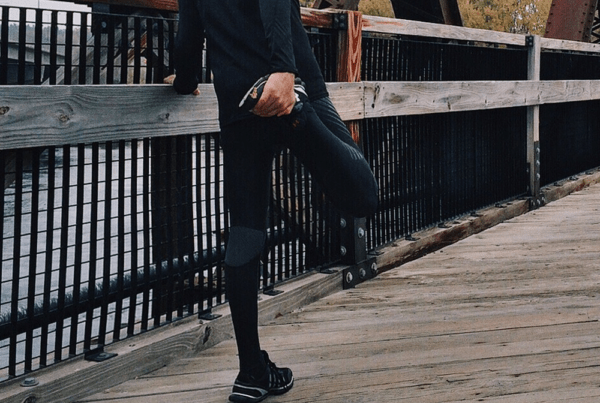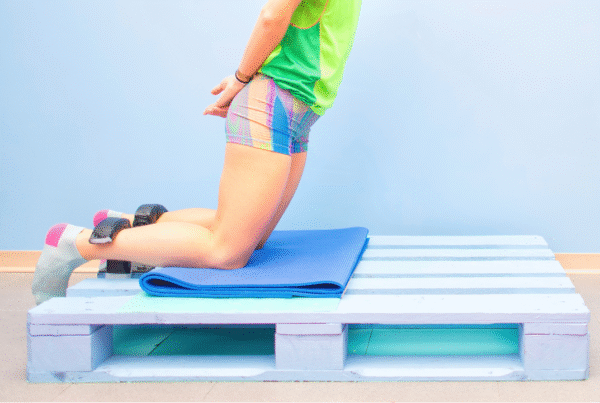In honour of mental health awareness month, I got to do a deep (and personal) dive into why I love rocking climbing and how it benefits my mental health. It is pretty clear that rock climbing is an intense physical activity. It demands strength, flexibility, power, and endurance. It’s sweaty and exhilarating!
But the sweet addiction of climbing isn’t from the physical demands alone, but the clarity and mental health benefits created on the wall. Like many sports, climbing gives you an endorphin rush from the physical nature and mental determination needed to get through the movements. But I’ve experienced a unique rush from climbing that has bent my mind in new and wonderful ways. Here are the Top Three Mental Health Benefits I (and my climber friends) have fostered on the rock.
Patience. I have met very few lucky climbers who have climbed the grade ladder with seeming ease, moving up six grades in a matter of months. This has not been my journey. I remember clearly my first lead climb – the terror and physical struggle. The challenge never got that much easier; the climbing just got harder. Each grade has been a battle of dedicated time for training and over-coming mental barriers.
This has taught me patience. Climbing is (as Chris Sharma would say) 95% falling and failure. We often walk away from the wall with a bruised ego and often bruised body. Proficient climbing takes time; it takes time to develop robust fingers, contact strength, good technique, and a resilient head game. It takes patience to learn to cope with failure and frustration over and over.
But learning patience is great for our mental health. Every day frustrations happen, we get stuck in traffic, co-workers ask too many questions, there is a massive line at the check-out, but as an article in Psychology Today touts, patience is a place of power in the mind. Patience teaches us to observe, reflect and gain knowledge before acting. It teaches us to practice self-control and discipline.
Focus. I found in other sports or while trying to meditate, my mind would be distracted with my to do list for the week. The quiet hum of my mind in the background would ebb and flow but was always there. Nothing has drawn my focus like staring down the gun barrel of taking a massive fall while climbing. Absolute focus and breath has been created from moments like tip toeing across small delicate holds with the last piece of protection meters away from my feet, knowing that a small shift in focus that throws my balance, will send me reeling backward for a big screaming whipper.
Climbing demands your full attention, total awareness on one moment. This is the practice of mindfulness and has taught me to be more present in climbing and other places outside the sport. Mindfulness is a big buzz term in psychology and for good reason. Learning to be more present in the moment allows us to let go of past stress or concerns of the future. Mindfulness teaches you to pay attention to physical sensation and breath. Studies show that a mindfulness practice helps reduce stress and improve mental clarity. It’s been great to find a mindfulness practice on the wall!
Resilience. Even the boldest climbers have worked to overcome their fear. Moving past a run out or working the difficult part of the climb is nerve wrecking and stressful. However, small controlled stressful situations are actually good for the nervous system and mind! In the moment fear might feel a little (or a lot) uncomfortable out but once you have made it to the top (or taken the fall) your brain learns you can manage that stress. Do this often enough and the daily stressors in your life might not seem so big after all.
When I first started climbing, I was afraid of heights. I would often get so scared on a climb I would freeze and need to come down. It took a lot to learn how to work through the fear. I started taking practice falls, counting down and committing to the movement, and just repeatedly practicing facing my fear and slowly it became less daunting. Psychology Today takes about habituation, that the nervous system arousal decreases on repeated exposure to the same stimulus. This practice of habituation to fear and learning to overcome can create a sense of empowerment. Rock climbing has shown me that fear is just an emotion. Mental health thrives when we learn that the things which make us uncomfortable is just that, an emotion, and we can step away from identifying with that feeling and observe that response and let it pass.





